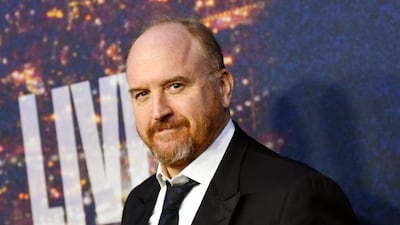In November 2017, the comedian Louis CK released a statement in which he confirmed allegations of sexual misconduct made against him by five women. “I have spent my long and lucky career talking and saying anything I want,” he concluded. “I will now step back and take a long time to listen.”
Nine months later, Louis CK was back on stage in New York. Okay, so he'd lost a few lucrative deals and an upcoming film was scrapped, but otherwise it was business as usual. There he was, with a microphone and an audience, doing the same cranky white-guy thing that has earned him six Emmy awards and a top-five spot in Rolling Stone magazine's list of the best stand-up comedians of all time.
The speed of transition from his admission of guilt to apparent rehabilitation didn’t sit well with many people. As the comedian Sarah Lazarus pointed out: “I’m still on the same shampoo bottle as when Louis CK’s time out started.”
But it gets worse. Audio has surfaced from a recent performance, in which Louis CK mocked the survivors of the February 2018 Marjory Stoneman Douglas High School shooting in Florida. "You're not interesting because you went to a high school where kids got shot," he said, before ridiculing progressive views now held by many young people.
The contrite tone of Louis CK’s 2017 statement has been replaced by something altogether more confrontational. He wants to let us know that he doesn’t care what we think of him any more – and, depressingly, this appears to have won him a new set of fans.
At one point during the tape, when he complains about not being able to use the word "retarded", he is challenged by a member of the audience and responds with an expletive-laden rant, in which he says: "My life is over".
It is infuriating to hear him pretend that it is somehow radical to be offensive. Comedians have done so for decades. Just stick your head in the barrel, scrape around a bit, and you’ll find the careers of Jim Davidson, Bernard Manning and Roy “Chubby” Brown.
Comedians can say almost anything. Watching them pushing an audience to its limit is part of what makes the art form exciting. But the success of any joke depends on the target. Of course it’s possible to make a good joke about school shootings. The reason Louis CK didn’t manage to is because he broke comedy’s golden rule: always punch up, not down. By all means, use a school shooting to skewer US gun laws, just don’t mock the victims.
However, as spiteful and unfunny as these jokes were, the way Louis CK has stomped back into the limelight is even more grim. Clearly his idea of a “long time” is very different from everyone else’s. The brevity of his exile and the desperate comeback material have revealed him as a man who believes he has been wronged and has come out fighting. Hearing him bleat that his “life is over”, you’d almost think that he was the victim – not those he harassed and traumatised.
Louis CK is just one of a number of men who, accused of sexual misconduct, refuse to act appropriately. At the tail end of last year, the actor Kevin Spacey – against whom a string of sexual assaults against young men are alleged and who was last week arraigned by a Massachusetts court on felony charges – released a bizarre Christmas video. In it, he affects the voice of his House of Cards character Frank Underwood and says: "I know what you want: you want me back."
I’m not sure anyone does, but be in no doubt these guys are going to try to reclaim their space in the public eye. We are going to have to work out – and quickly – which of them, if any, we can tolerate and which we can’t. It’s complicated and scary to discuss, but discuss it we must. Who and what are we prepared to forgive?
Given that most of the thousands of cases highlighted by the #MeToo movement have involved men preying on women, this is not a question I feel comfortable answering. However, we all have a duty to call out unacceptable behaviour and, in the case of people such as Louis CK, we are able to vote with our feet. After all, comebacks don’t happen without an audience. We should continue to listen, learn and, most importantly, believe the women and survivors of abuse who come forward.
The singer John Legend featured in a newly released six-part documentary about R Kelly, the R&B star around whom allegations of sex crimes have swirled for decades. When Legend was commended on social media, he responded: "To everyone telling me how courageous I am for appearing in the doc, it didn't feel risky at all. I believe these women ... Easy decision." That seems to sum things up fairly well.
The past year has brought to light the shocking extent of sexual misconduct in the entertainment industry. But if these revelations are to have a lasting impact, those guilty cannot expect to stroll back into public life on their terms. The “time to listen” is a long way from being over – and we all have a part in ensuring that, this time around, it is the victims who hold the power.
Rupert Hawksley is an arts and culture writer at The National


